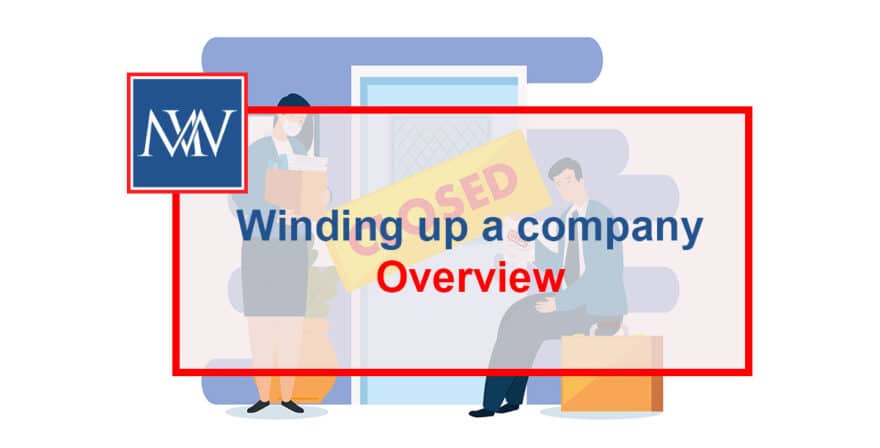
Winding up a company – Overview
Winding up a company usually involves a considerable amount of forethought, planning and paperwork because a number of possible exit routes exist and each company situation is different. In general however, the directors usually sell their shares to someone else, who continues to run the business, or sell their assets and shut down the company.
Once it has been determined that a company is to be wound up, there are a number of relationships and obligations which must be terminated. Whether a company is solvent or insolvent, obligations to customers, suppliers and employees must be brought to a close.
Closing down
Once the directors have voted to cease trading, closing down a limited company begins with preparing final trading accounts. For corporation tax, when the winding up period begins, the current accounting period comes to an end and a new one begins. From that point on, the company’s accounting periods run for periods of 12 months until the winding up is complete.
Final accounts will be submitted to HMRC along with form CT600 (company tax return) and the computation of corporation tax. HMRC will be advised that these are the final accounts and that the company is to be dissolved. If final liabilities are not paid in full, HMRC may object to dissolution of the company.
Disposal of company shares and/or assets
Where shares are disposed of, the sale consideration flows directly to the shareholder, whereas on a disposal of assets, the money flows to the company, and further tax may be payable when the money is subsequently extracted. The effective double charge to tax on gains arising in companies where the money is extracted by shareholders has been mitigated over the years by:
- business asset disposal relief for shareholders in computing their gains on the shares;
- the relatively recent reductions in the standard rate of capital gains tax to 18%, and now 10%, for basic rate taxpayers; and
- indexation relief available up to 31 December 2017 and frozen from that date.
If the vendors are individuals and they want to receive the sale consideration personally, a simple sale of the company is generally likely to result in lower tax liabilities than a sale by the company of its assets followed by a distribution to the shareholders (whether by way of a dividend or in a winding-up or a combination of both).
Business Asset Disposal Relief (BADR)
Business asset disposal relief (BADR) (formerly known as Entrepreneurs’ Relief (ER)) may be available to individuals who dispose of shares in their personal company. There is a lifetime limit on the amount of BADR available to an individual – for disposals on or after 11 March 2020, the lifetime limit is £1m. Qualifying gains within the lifetime allowance are charged at the rate of 10%. Gains in excess of this limit are charged at the rate of 20% rate.
To qualify, both of the following must apply for at least two years up to the date the shares are sold:
- the individual is an employee or office holder of the company (or one in the same group);
- the company’s main activities are in trading (rather than non-trading activities like investment) – or it’s the holding company of a trading group.
There are also other rules depending on whether or not the shares are from an Enterprise Management Incentive (EMI).
If the shares are not from an EMI, for at least two years before the sale of shares, the business must be a ‘personal company’. This means that the individual has at least 5% of both the:
- shares; and
- voting rights
They must also be entitled to at least 5% of either:
- profits that are available for distribution and assets on winding up a company; or
- disposal proceeds if the company is sold
If the number of shares held falls below 5% because the company has issued more shares, the individual may still be able to claim BADR.
Early planning
Early planning and preparation will be the key to a successful exit strategy. In some cases, the disposals make be phased gradually over a number of years. Seeking professional advice when thinking about disposing of a business is always recommended.
For more information on Winding up a company, Book a Free Consultation
Need Accountancy Support?
For information on bespoke training, or if you have any other questions for Makesworth Accountant, please fill in your details below
















 151
151